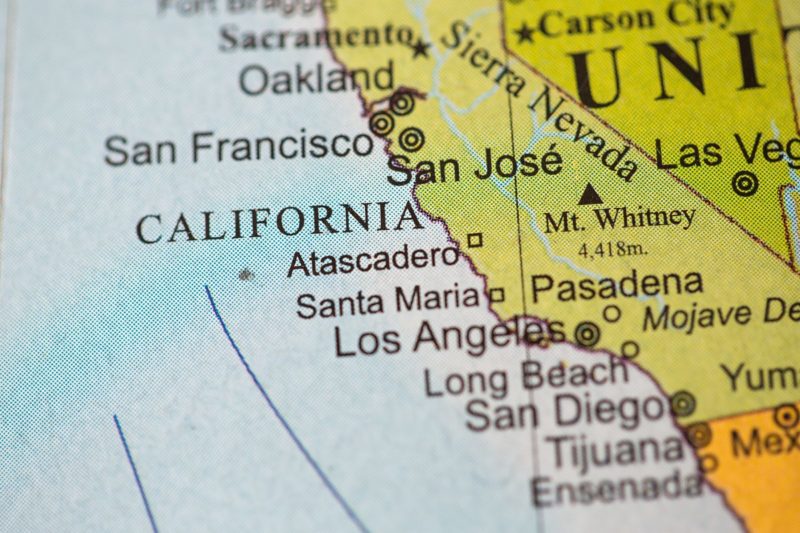What Does It Look Like When a State Bucks the Hyde Amendment?
California offers abortion care coverage under a program called Medi-Cal—rejecting the federal funding ban on abortion care imposed by Hyde Amendment, which turns 40 this month.

When Women’s Health Specialists opened 41 years ago in Chico, a town of 88,000 in northern California, Eileen Schnitger heard locals “saying right away, we need a place for abortion, we need abortion care.”
This was back in the early days of public health insurance coverage of abortion care in California. The Golden State offers the coverage under a state program called Medi-Cal—rejecting the federal funding ban on abortion care imposed by Hyde Amendment, which turns 40 this month.
California is one of 15 states that cover abortion care with state funds.
Schnitger has witnessed the good and the bad of California’s abortion care coverage in the intervening years.
“Stopping the Hyde ban is essential, but there are still so many obstacles to access,” said Schnitger, director of public policy with Women’s Health Specialists, an independent provider. “It doesn’t solve all the problems.”
The Hyde Amendment, an appropriations rider first introduced by Rep. Henry Hyde (R-IL), singles out abortion care as the only health service that Medicaid will not cover, except in rare circumstances. Hyde contributes to stigma by segregating abortion care. People of color and the impoverished bear the brunt of Hyde’s restrictions.
About of one-third of Californians are enrolled in Medi-Cal. The program covered 83,485 abortion services in 2014, the most recent year available from the California Department of Health Care Services. That’s down from 95,101 abortion services in 2011, mirroring the national decline in abortion rates.
Medication abortion accounted for 46 percent of the abortion services covered in 2014, according to state data. That’s more than double to the national average of 20 percent reported by the U.S. Centers for Disease Control and Prevention in 2012, the most recent year available, suggesting that state coverage allows Californians to access care earlier.
Medi-Cal patients now account for 85 percent of the patients at Women’s Health Specialists, Schnitger said. That’s up from about 30 percent in the 1970s.
Schnitger has seen confusion among patients and primary care doctors about accessing abortion care. Schnitger told Rewire in a phone interview that their clinics routinely field questions from patients: Do I need a doctor’s referral for abortion care? Am I eligible?
“We’ve been working really hard to let women know their rights and let providers know too,” Schnitger said.
Women’s Health Specialists operates three full-time clinics offering reproductive health services, including abortion care, and runs five satellite locations open one day a week without termination services. The facilities, Schnitger said, draw patients from more than 30 counties—a geographic area roughly the size of Ohio.
Schnitger said a Medi-Cal patient in the first trimester could go to one of seven cities in the region for abortion care. But for later gestations, “most women have to travel in to the Bay Area to get abortions on Medi-Cal in that 20- to 24-week range.”
To qualify for Medi-Cal, a person typically can’t make more than $16,395 a year. But even Californians who qualify might not be aware of the coverage. In a 2012 survey by the California HealthCare Foundation of Californians eligible for Medi-Cal, 71 percent of respondents weren’t sure or didn’t believe they qualified for coverage, and 62 percent weren’t sure how to apply.
Policy experts, meanwhile, point to plunging reimbursement rates for abortion care, which raises patient costs and lengthen delays, according to research.
California has one of the country’s lowest average reimbursement rates for doctors, according to a new report, “Barriers to Abortion Care in California: Highlighting Challenges of Medi-Cal Coverage.”
California in 2015 slashed provider reimbursement rates by 10 percent. The average reimbursed cost for abortion care was $512 in 2014, according to the most recent data available from the state.
“When the state essentially underpays for a health-care service, some providers are forced to stop accepting Medi-Cal for that service in order to keep their doors open,” Samara Azam-Yu, executive director of the Oakland-based advocacy group ACCESS Women’s Health Justice, told Rewire.
The consequences can require patients to drive hundreds of miles to find a Medi-Cal provider, Azam-Yu said.
That’s just one of the hurdles.
“Even with Medi-Cal funding, women still have to get…child care, they have to get time off of work,” Schnitger said.
Schnitger said their clinics field dozens of calls a day from pregnant people asking how get a referral for abortion care from the doctors.
They don’t need a referral, Schnitger will tell them. She said even some primary care physicians mistakenly think a referral is necessary, although the law doesn’t require it.
Amid this confusion, the staff at Women’s Health Specialists have seen their role expand: from service provider to health-care system educator.
“As an independent provider, we’re trying to educate the whole state,” Schnitger said.

